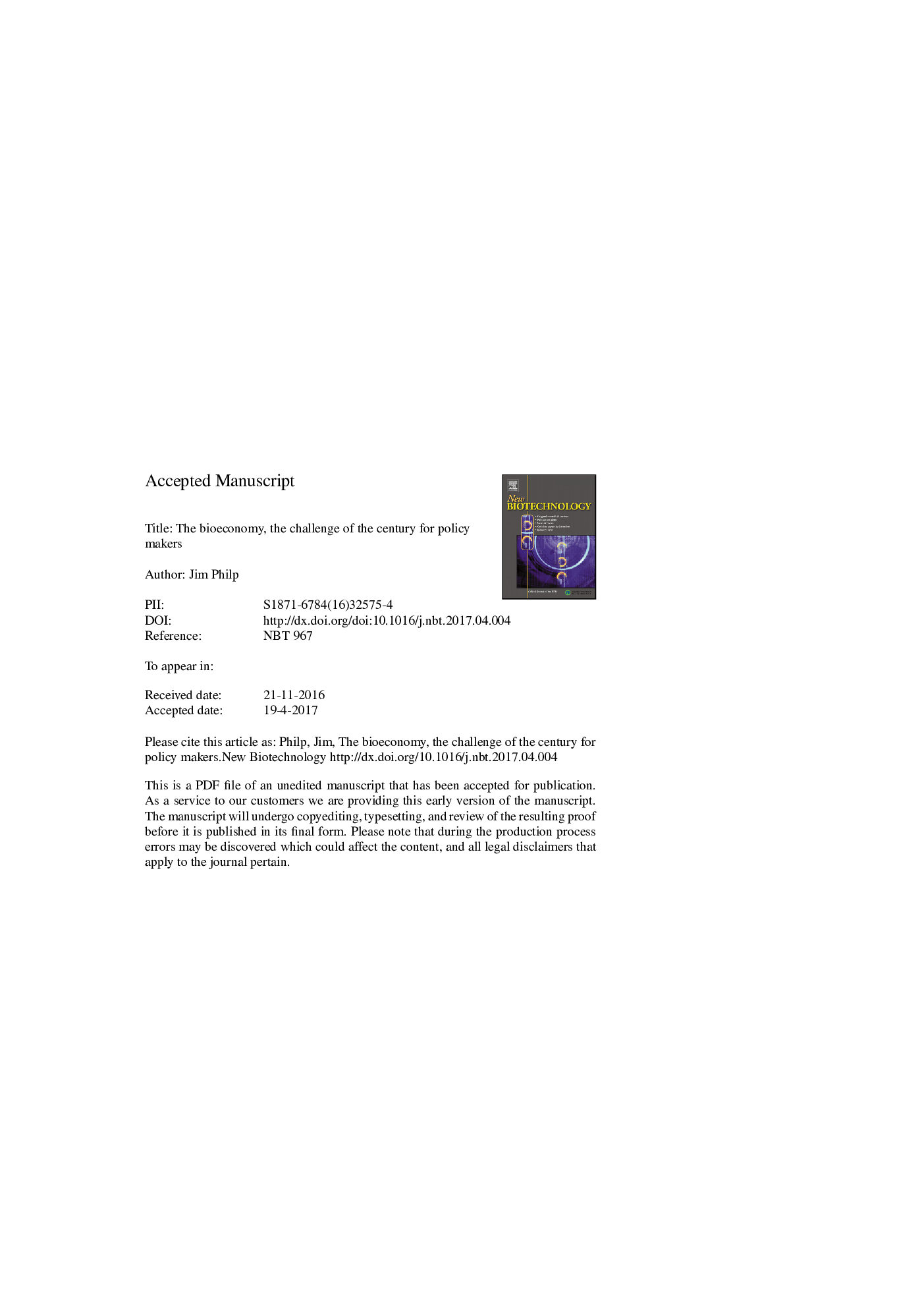| Article ID | Journal | Published Year | Pages | File Type |
|---|---|---|---|---|
| 6494912 | New Biotechnology | 2018 | 19 Pages |
Abstract
During the Industrial Revolution, it became clear that wood was unsuited as an energy source for industrial production, especially iron smelting. However, the transition to coal was the effort of decades. Similarly, the transition from coal to oil was neither a smooth nor rapid process. The transition to an energy and materials production regime based on renewable resources can similarly be expected to be fraught with many setbacks and obstacles, technically and politically. Those earlier transitions, however, were not complicated by the so-called grand challenges faced today. Above energy security and food and water security lurks climate change. Some events of 2015 have politically legitimised climate change and its mitigation, and 2016 saw the world finally sworn to action. The bioeconomy holds some of the answers to the economic challenges thrown up by mitigating climate change while maintaining growth and societal wellbeing. For bioeconomy policy makers, the future is complex and multi-faceted. The issues start in regions and extend to global reach. It is hard to quantify what is going to be the most difficult of challenges. However, one of the visions for the bioeconomy, that of distributed manufacturing in small- and medium-scale integrated biorefineries flies in the face of the current reality of massive fossil fuel and petrochemical economies of scale, married to gargantuan fossil fuel consumption subsidies.
Related Topics
Physical Sciences and Engineering
Chemical Engineering
Bioengineering
Authors
Jim Philp,
